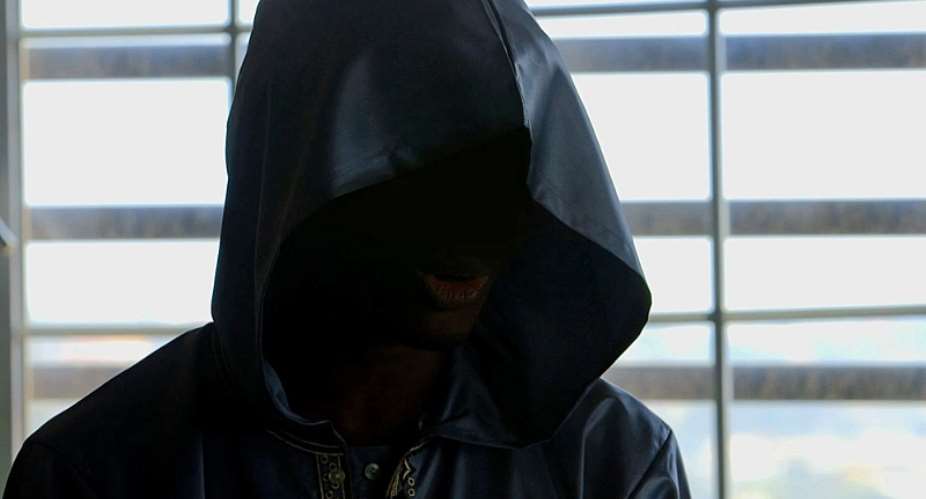The problem of who aptly qualifies to be called or designated a “journalist” may very well be at the heart of the alleged abuse that some of our media operatives may be suffering. For instance, the classification of Mr. Anas Aremeyaw Anas, the proprietor of the Tiger-Eye Private Investigative Company, or Tiger-Eye PI, is very problematic because traditionally speaking, an “investigative journalist” was one who was affiliated with a legitimately recognized media organization or establishment, such as a newspaper or a radio and television broadcast establishment. In the case of Mr. Anas, it is quite clear that the latter started out as the media investigative protégé or understudy of Mr. Abdul-Malik Kweku Baako, the Editor-Publisher of The New Crusading Guide and used to have the results and/or findings of his investigations regularly published as part of the contents of the aforementioned daily.
However, as of this writing, the Tiger-Eye PI boss could not be legitimately described as a “journalist” in the traditionally functional sense or usage of the term. As of this writing, Mr. Anas is a bona fide private investigator with a “for-profit” corporate bent or leaning. He clearly operates independently of The New Crusading Guide. Neither is he a practicing lawyer, a profession for which he is widely known to have studied for but of which he is not known to have remarkably distinguished himself. We shall take this matter up at the appropriate time; that is, the apparent predominance of northern-descended Ghanaian journalists at the punitive edge of widely alleged law-enforcement brutalities and/or atrocities. Is this because there is a peculiar cultural edge of unsavory proportions that these “latter-day” journalists bring to their work as media operatives that ought to have been earlier on recognized by their journalism instructors or professors and academically and professionally deftly handled in a way that could have ensured that it positively served to enrich journalistic practice in the country?
As I highlighted in the first part of this two-part series, Journalism has never had a more fertile and hospitable climate for development at anytime since the pioneering period of the Kwame Nkrumah-led government of the Convention People’s Party (CPP) than it does presently. Indeed, I could not be prouder and more elated to learn from the 2018 World Press Freedom Index that not only does Ghana rank foremost among continental African countries in the level of freedom of the press, but even more significantly, Ghana also ranks higher in the allowance and protection of media freedom than such constitutionally advanced industrialized democracies as Spain, France, Britain and the United States. On the latter count, of course, Ghanaians have none other than the foresighted and dynamic author of the landmark Repeal of the Criminal Libel Law, which had been in use since the British colonial era to literally put local or “native” Ghanaian and African journalists on a leash to thank. And that dynamic and visionary author, of course, is none other than the now-President Addo Dankwa Akufo-Addo.
Ironically, President Nkrumah could confidently claim to have liberated Ghanaians from bone-chilling British imperialism, when, in reality, all that he had achieved in the area of both free-speech rights and media freedom was to simply doggedly continue from the repressive level where the British left off. To be certain, media freedom under the Nkrumah-led Convention People’s Party regime was decidedly nonexistent. At any rate, contrary to what Mr. Muheeb Saeed, the Program Officer of the Media Foundation for West Africa (MFWA), would have the rest of the world believe, by and large, Ghanaian journalists are too thoroughgoing corrupt already for anybody to worry about the current spate of alleged victimization of journalists by law-enforcement agents’ having any corrosive or negative impact on the media’s fight against official corruption. What of the longstanding professionally hobbling culture of “Soli” or “Solidarity,” whereby Ghanaian journalists routinely expect to be “tipped” by prominent personalities and politicians whom they regularly cover?
Then also, as readily accessible records indicate, the apparent assassination of Mr. Ahmed Hussein-Suale, the former Tiger-Eye PI employee, is not the very first of its kind in either Ghana’s postcolonial or Fourth-Republican history. And it is bound to continue, unless our media laws, especially those dealing with the protection of our journalists, are rigidly enforced. But, of course, our media operatives also need to be sternly reminded that with the salutary emergence of a free press must also be equally recognized the imperative need for accountable and responsible journalistic practice.
*Visit my blog at: kwameokoampaahoofe.wordpress.com Ghanaffairs
By Kwame Okoampa-Ahoofe, Jr., PhD
English Department, SUNY-Nassau
Garden City, New York
March 22, 2019
E-mail: [email protected]





 Saglemi Housing Project will not be left to rot – Kojo Oppong Nkrumah
Saglemi Housing Project will not be left to rot – Kojo Oppong Nkrumah
 Transport fares hike: GPRTU issue two-day ultimatum
Transport fares hike: GPRTU issue two-day ultimatum
 ARC endorses Alan as presidential candidate – Buaben Asamoa
ARC endorses Alan as presidential candidate – Buaben Asamoa
 Akufo-Addo appoints Kwasi Agyei as new Controller and Accountant-General
Akufo-Addo appoints Kwasi Agyei as new Controller and Accountant-General
 PNC dismiss reports of mass resignations
PNC dismiss reports of mass resignations
 PAC advocates for revenue collectors to be engaged on commission basis, not full...
PAC advocates for revenue collectors to be engaged on commission basis, not full...
 Genser Energy commissions 110km of natural gas pipeline at Anwomaso
Genser Energy commissions 110km of natural gas pipeline at Anwomaso
 Naa Torshie calls for tolerance, peace ahead of 2024 election
Naa Torshie calls for tolerance, peace ahead of 2024 election
 Asantehene commends Matthew Opoku Prempeh for conceiving GENSER Kumasi Pipeline ...
Asantehene commends Matthew Opoku Prempeh for conceiving GENSER Kumasi Pipeline ...
 Let’s do away with ‘slash and burn politics’ in Ghana — Dr Adutwum
Let’s do away with ‘slash and burn politics’ in Ghana — Dr Adutwum
